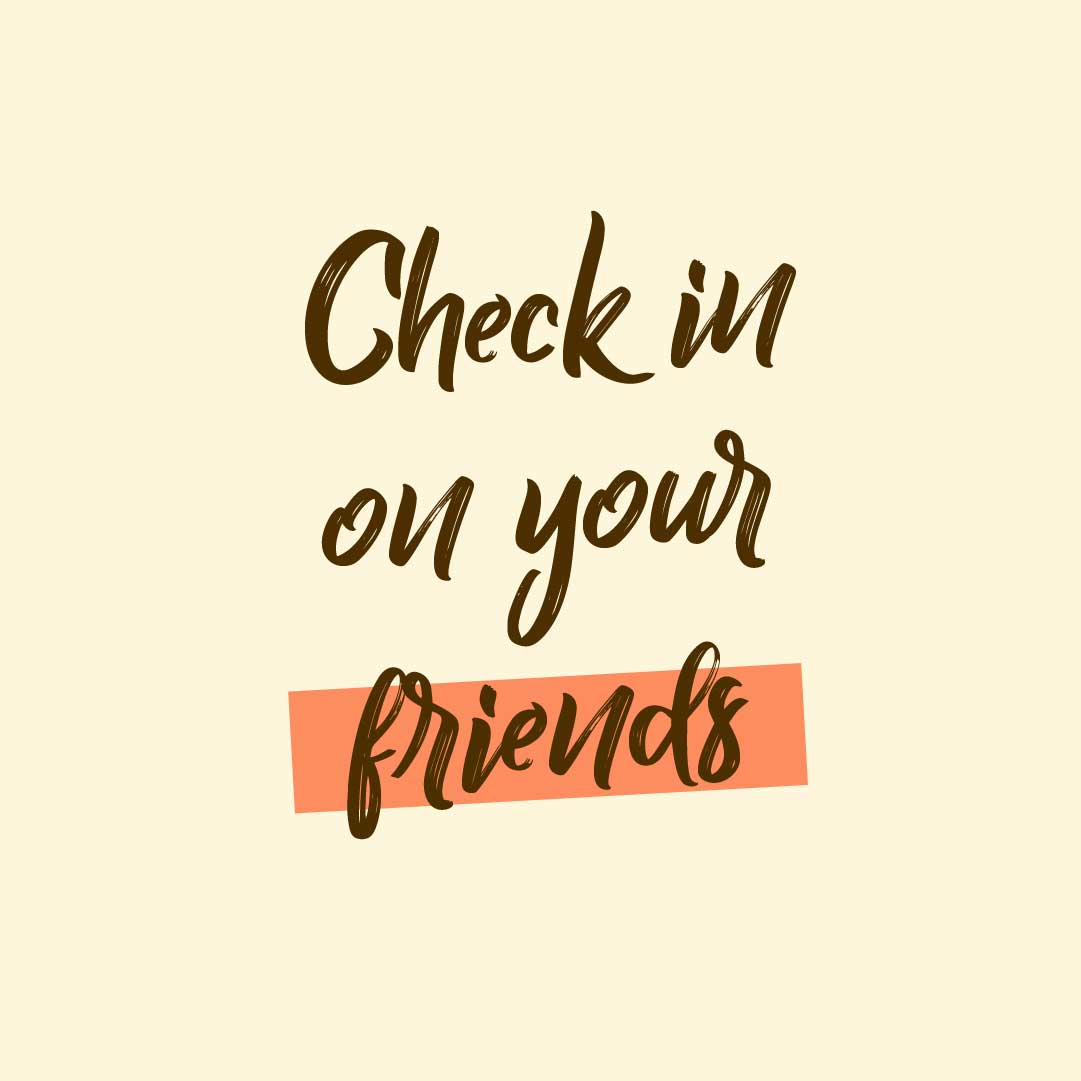When you’re struggling or having a bad day, you probably turn to your friends first. But what about when they’re the ones having a hard time? How can you support your friend and be a good mental health ally? Where can you get advice?
Pay attention
A lot of people put on a brave face, and might not tell you they are struggling with their mental health. If you notice that someone seems a bit different, or hasn’t been joining in like they usually would, it might be a sign that things aren’t going well.
The video below shows some of the signs you might see if a friend is struggling.
Have a chat
It can be tricky to know how to start a conversation, especially when you haven’t talked about feelings or mental health before. A simple “are you okay?” can be a good start. You could mention you have noticed your friend hasn’t been behaving or acting the same lately.
Sometimes, just having a chat with a friend can help heaps. The best thing you can do is listen without judgement. It doesn’t matter if you haven’t experienced the same thing; you can still acknowledge and validate what they are feeling…you might say something like “that sounds hard”, or “I can see why you’re upset”. Letting your friend know they are heard can make them feel supported.
Ask how you can help
Offering support shows you care and can reassure your friend that they don’t have to face their problems alone. Your offer to help might also encourage them to think about finding some positive coping strategies and may encourage them to ask for help from a professional. The video below can help you and your friends understand how to access the mental health supports available.
Keep checking in
It’s important to understand that sometimes your friend won’t feel ready to join you for activities if they’re struggling. But letting them know you would love to see them can help remind them they’re not alone and that people want to spend time with them. Try to arrange some quieter time together, even if it’s just watching a movie or going for a walk. Don’t pressure them to talk, but be ready to listen when they want to share.
Take a break
It’s important to listen when your friend wants to talk but sometimes a little distraction can work wonders too. Talk about a shared interest, tell them what’s going on in your life, or go outdoors and kick a footy around. Initiate a healthy activity that works in the moment.
Respect their privacy
It isn’t easy to open up about mental health, so respect your friend’s trust. Don’t share their struggles with other friends. If you’re really worried about your friend or need someone to talk to about how to support them, talk to a trusted adult. If you think your friend is at risk of hurting themself or others, it’s important that you tell an adult you trust. Your school’s guidance officer is a good person to speak to if you’re worried.
Find useful resources
There are some great resources online for people struggling with mental health and their allies. headspace has a stack of helpful articles and online groups for young people ages 12–25 who want a bit of help to deal with things happening in their lives. Kids Helpline is another great place to find help for anyone aged 5-25. Their website is packed with helpful information for teens who need support for their mental health.
Seek help
If you think your friend needs more help than you can give, you could recommend they talk to a qualified mental health professional. They can talk with counsellors for free, by phone or online, at headspace on 1800 650 890 and Kids Helpline on 1800 55 1800 24/7. headspace and Kids Helpline phone lines are staffed by trained mental health professionals who are there to listen. Jump on their websites to find out the best way to get in touch and the times people will be there to answer the phone.
If you or your friend needs to speak to someone urgently, call Kids Helpline 24/7 on 1800 55 1800, or Lifeline on 13 11 14. If there is an emergency, you can take your friend to any emergency department, or call 000.
Take care of yourself
Supporting a friend shouldn’t mean neglecting your own needs. It’s important to notice if you start to feel stressed or overwhelmed. Try using some coping strategies or chat to a friend or a counsellor. You’re not alone. Use the supports available to help you and your friend, and remember you need to look after yourself to be a good mental health ally.


